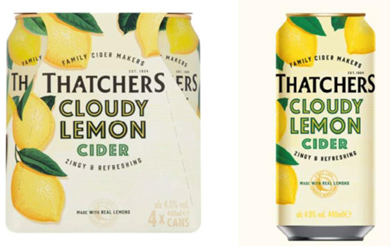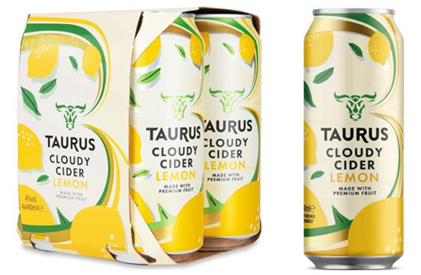21.01.2025
On 20 January 2025, the Court of Appeal delivered a significant judgment in the case of Thatchers Cider Company Limited v. Aldi Stores Limited, ruling in favour of Thatchers in its trade mark infringement claim against Aldi. This decision overturned a previous High Court ruling from January 2024, which had dismissed Thatchers' claims.
Thank you
Thatchers, a renowned family-owned cider producer based in Somerset, launched its Cloudy Lemon Cider in 2020. In 2022, Aldi introduced its own Taurus Cloudy Lemon Cider, which Thatchers alleged bore a striking resemblance to their product's packaging and branding.


In January 2024, the High Court dismissed Thatchers' claim. The Court found a low degree of similarity between the products but concluded that there was no significant likelihood of consumer confusion. This decision was based on the assessment that the differences in branding and packaging were sufficient to distinguish the two products in the eyes of the average consumer.
Dissatisfied with the High Court's judgment, Thatchers appealed the decision. The appeal was heard in December 2024, and the decision issued today overturns the High Court ruling.
Lord Justice Arnold found that Aldi's Taurus Cloudy Lemon Cider had infringed upon Thatchers trade mark. He stated that the resemblance was clear and that Aldi intended the design to remind consumers of Thatchers product, conveying the message that the Aldi product was similar but cheaper. This, he concluded, allowed Aldi to benefit from Thatchers investment in developing and promoting its brand.
However, the Court clarified that it did not believe Aldi intended to deceive or confuse customers. Despite this, the judges noted that Aldi had achieved substantial sales of the cider in a short period without spending on promotion, indicating that the design's similarity played a role in its market performance.
This ruling underscores the importance of intellectual property rights and serves as a warning to retailers about the risks of producing own-brand products that closely mimic established brands. The decision reinforces the legal protections available to brand owners against imitation and highlights the Courts' willingness to uphold these rights to prevent unfair advantage. The case also adds to a series of legal challenges faced by Aldi over allegations of copying product designs from other brands, indicating a broader scrutiny of such practices in the retail industry.
As Aldi plans to appeal the decision, the case may continue to evolve, potentially setting further precedents in trade mark law and the protection of brand identity in the UK market.

10.11.2025
Cloned UK Trade Mark Rights - Deadline CloseIf a cloned UK trade mark right is challenged for non-use, use of that mark in the EU currently counts towards demonstrating genuine use. However, this will not be the case for much longer. From 31 December 2025, owners of cloned UK trade mark rights must show genuine use in the UK only to maintain a challenged right as use in the EU will no longer be relevant.

20.11.2025
Insights into the Valuation of Brands: In Conversation with Beth RubinBrand valuation is essential for mergers and acquisitions, tax planning, strategic decision making, and financial reporting.
Thank you